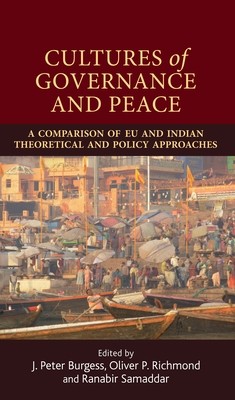
- We will send in 10–14 business days.
- Publisher: Manchester University Press
- ISBN-10: 0719099552
- ISBN-13: 9780719099557
- Format: 15.6 x 23.4 x 1.3 cm, hardcover
- Language: English
- SAVE -10% with code: EXTRA
Cultures of Governance and Peace (e-book) (used book) | bookbook.eu
Reviews
Description
This volume brings together insights which look at the intersection of governance, culture and conflict resolution in India and the European Union. Two very different but connected epistemic, cultural and institutional settings, which have been divided by distance, colonialism and culture; yet have recently been brought closer together by ideas and practices of what is known as liberal peace, neoliberal state and development projects. The differences are obvious in terms of geography, culture, the nature and shape of institutions, and historical forces: and yet the commonalities between the two are surprising. This is the first book to compare contemporary Indian and European Union approaches to peace and is based on strong case studies and rigorous analysis. Postgraduate students, peace and conflict researchers, policy-makers and practitioners will benefit immensely from insights provided in this book.
EXTRA 10 % discount with code: EXTRA
The promotion ends in 7d.09:01:16
The discount code is valid when purchasing from 10 €. Discounts do not stack.
- Publisher: Manchester University Press
- ISBN-10: 0719099552
- ISBN-13: 9780719099557
- Format: 15.6 x 23.4 x 1.3 cm, hardcover
- Language: English English
This volume brings together insights which look at the intersection of governance, culture and conflict resolution in India and the European Union. Two very different but connected epistemic, cultural and institutional settings, which have been divided by distance, colonialism and culture; yet have recently been brought closer together by ideas and practices of what is known as liberal peace, neoliberal state and development projects. The differences are obvious in terms of geography, culture, the nature and shape of institutions, and historical forces: and yet the commonalities between the two are surprising. This is the first book to compare contemporary Indian and European Union approaches to peace and is based on strong case studies and rigorous analysis. Postgraduate students, peace and conflict researchers, policy-makers and practitioners will benefit immensely from insights provided in this book.


Reviews